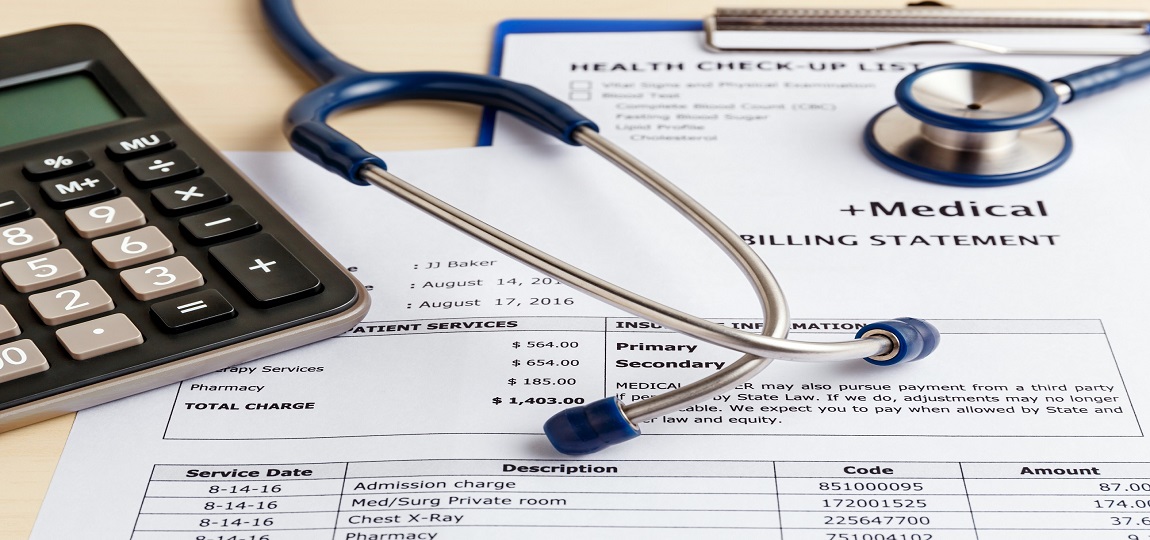The fear of having to pay for unexpected medical bills is at the forefront of many people’s minds. Countless Americans worry that bills from a hospital visit, ambulance ride, surgery, or other unplanned medical emergency could decimate their hard earned savings.
According to a Marketplace-Edison Research poll, 60% of individuals reported having some fear of unexpected medical bills. Unfortunately, this concern is well-founded as another poll from earlier in 2019 found that for every five Americans, one received a surprise medical bill within the last two years. Therefore, it is understandable for any individual to be uneasy about such a financial hit.
Here we’ll take a look at some of the reasons you might receive an unexpected medical bill, as well as some ways to help pay off the debt if you find yourself facing one.
Unexpected Bills Might Not be From an Emergency
An unexpected medical bill isn’t always one you receive after a medical emergency. It could be the result of a planned surgery, or from a diagnostic test such as an X-ray, blood test, or MRI. If you expect your insurance company to cover the full cost of the medical work but the claim ends up being denied or only partially covered, you could end up with an unexpected medical bill.
To help avoid unplanned bills from planned medical procedures, be sure to review your insurance coverage prior to visiting your provider. Check to see if the specific procedures or services you’re looking to have done are covered by your insurer. You should also check to make sure that your provider is within your insurer’s network, and that you have gotten any necessary referrals beforehand.
Balance Billing
In some cases, unexpected medical bills could arise due to “balance billing.” This happens when you receive a medical service you think is fully covered by your insurance plan, but your insurance company only pays a percentage of the bill. In a balance billing scenario, the insurance company will only pay up to a specified “allowed amount", leaving you responsible for paying the remaining balance.
Balance billing is a large point of contention for many who question the morality of such a practice. The good news is that in early 2021, a new federal law went into effect that bans balance billing under most circumstances. However, it can still be used when billing for certain non-emergency services if the medical provider gives you prior written notice at least 72 hours in advance of the service, and obtains your written consent.
Plan of Action for Unexpected Medical Bills
Unfortunately, no one has the ability to prevent an emergency, and depending on your insurance coverage, it could result in a sizable surprise medical bill. If this happens to you, it’s important to not just panic and completely ignore the bill. Doing so could result in your unpaid debt going to collections, which could have a significant negative impact on your credit score. The good news though, is that medical debt is treated differently than other types of debt and is expunged from your credit report once it is paid.
Rather than ignore a surprise medical bill outright, you should consider all of the options available to you. First and foremost, you should review the bill to confirm that it’s not the result of a billing or insurance error. If you’re confused about why your insurance didn’t cover the bill, call them to discuss. Sometimes, claims are denied due to clerical issues in the billing process. If that’s the case, the claim may just need to be resubmitted to your insurance company.
If after reviewing the bill you determine the charges to be legitimate, it may be time to negotiate. Call the billing office listed on the bill and explain your situation. They may be willing to work with you to find a solution, whether that be setting up a payment plan, or offering you a discount on the amount owed. If all other options fail, there are also organizations available to help people who are struggling with massive medical bills.
Be Proactive
If you typically have to pay a large amount out-of-pocket for medical care, it may be worthwhile to try and negotiate the cost of your care ahead of time with your doctor or medical facility. In many cases, if you offer to pay cash in advance of a planned procedure, your total charges will be lowered. Some doctors will reduce the cost of regular procedures by 10% or even 30% if you offer to pay upfront. This doesn’t help much in the case of an emergency, but planning ahead whenever possible is the best way to prevent yourself from experiencing unexpected medical bills you are unable to pay.
Another good idea is to start putting money aside on a regular basis to establish an emergency fund. Creating a savings account to pay for unplanned medical expenses will not only lessen the stress and burden of a surprise bill, but it will also help you to build strong savings habits so you can reach your future financial goals.
Have Hope
While receiving a large, unexpected medical bill is understandably stressful, it doesn’t have to be hopeless. Don’t take the silent approach and ignore the problem. By doing all that you can to remedy the situation – whether it be resolving billing errors, negotiating the payment, or seeking help from an outside source - you’ll help to protect your financial future.
